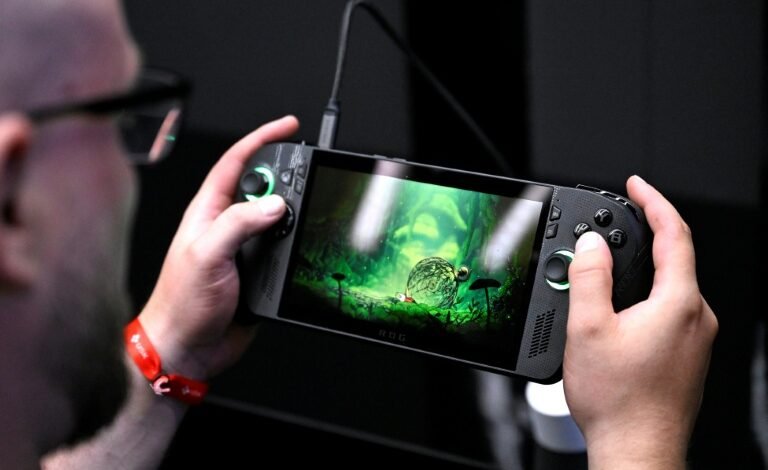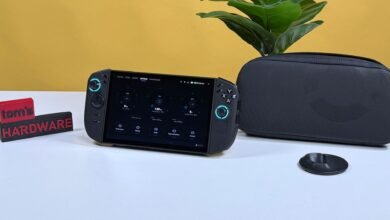Microsoft Re-enters Handheld Gaming Arena to Challenge Nintendo Switch

▼ Summary
– Microsoft is launching the Xbox ROG Ally handheld console to compete in the portable gaming market, targeting discerning and hardcore gamers.
– The device, developed in partnership with Asus, features a design similar to an Xbox controller and will be available from October 16, though pricing is not yet revealed.
– Microsoft aims to expand its gaming ecosystem, allowing players to engage across devices, as console sales decline and Game Pass subscriptions need growth.
– The main competitor in the handheld space is Valve’s Steam Deck, which targets PC gamers and has sold millions since its 2022 launch, unlike Nintendo’s Switch 2 which has exclusive games.
– Sony is currently not participating in the portable market, having withdrawn after the PlayStation Vita’s lack of success compared to the earlier PlayStation Portable.
Microsoft is making a bold return to the handheld gaming market with the Xbox ROG Ally, positioning itself as a serious challenger to Nintendo’s dominant Switch platform. Unveiled at Gamescom in Cologne, the device represents a strategic push to capture a segment of gamers seeking high-performance portable play without sacrificing the power of a home console.
Hundreds of thousands of visitors at the trade show had the chance to try the new device, which is the result of a collaboration between Microsoft and Taiwanese hardware manufacturer Asus. The design features a central screen flanked by two grips that mirror the familiar layout of a standard Xbox controller, complete with joysticks, triggers, and action buttons. The device is scheduled to launch on October 16, though pricing details have not yet been disclosed.
Jason Ronald, Microsoft’s Vice President of Console Development, emphasized the company’s broader vision, stating that the goal is to create a flexible ecosystem where players can enjoy games across multiple devices. This move comes at a time when Microsoft is seeking new avenues for growth, as traditional console sales have softened and its Game Pass subscription service has yet to achieve mass adoption.
While Nintendo’s Switch 2 recently set a record with 5.8 million units sold in just seven weeks, Microsoft’s primary competition in the handheld space isn’t Nintendo, it’s Valve. The Steam Deck, released in 2022, has already sold several million units and appeals to a different audience: those who want PC-level gaming on the go. Like the ROG Ally, it serves as a portable extension of a more powerful system.
Industry analysts note that Microsoft is targeting existing Xbox and PC owners with this device. Christopher Dring, founder of The Game Business, explained that the strategy is centered on increasing player engagement. When gamers play more frequently, even outside the living room, they tend to invest more time and money into the ecosystem. Rhys Elliott of Alinea Analytics echoed this, describing handhelds as complementary rather than replacement devices.
Notably absent from this renewed handheld competition is Sony. The company has remained on the sidelines since the discontinuation of the PlayStation Vita, which failed to replicate the success of its predecessor, the PlayStation Portable. With 76 million units sold, the PSP demonstrated there was a market for premium handhelds, but Sony has yet to signal a return to the category.
Microsoft’s re-entry into portable gaming reflects a shifting industry landscape where flexibility, cross-device play, and ecosystem loyalty are becoming increasingly important.





